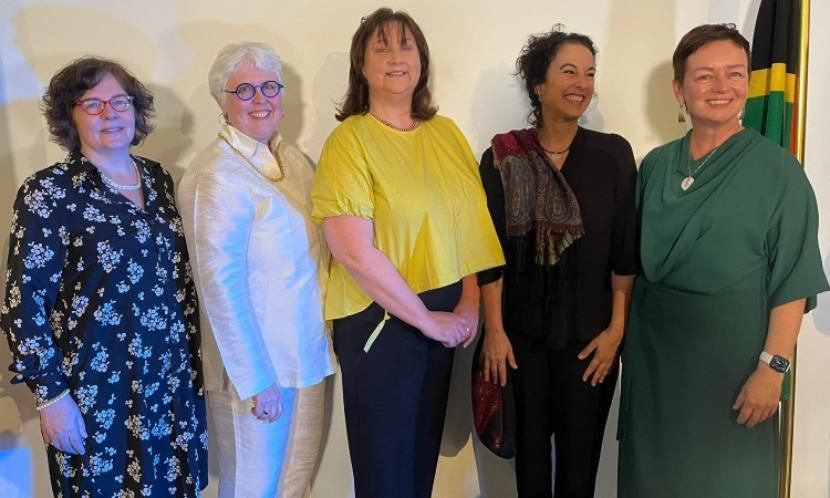A new Irish-South African Research Chair has been launched as a collaboration between Trinity and the University of the Western Cape (UWC).
Last week, the Charlotte Maxeke-Mary Robinson Research Chair was launched by Ambassador of Ireland to South Africa Fionnuala Gilsenan and UWC Vice-Chancellor Professor Tyrone Pretorius at the UWC Centre for Humanities Research.
This emerges out of a longstanding collaboration between Trinity Long Room Hub and the Center for Humanities Research at UWC, and is the culmination of relationships and networks forged through these institutions’ fellowship programmes. It draws inspiration from Seamus Heaney’s “The Cure at Troy”, dedicated to Nelson Mandela, which encourages us to think of “that further shore” where “hope and history rhyme”.
Supported by the Irish Department of Foreign Affairs, the initial phase of the work of the Research Chair will be to bring scholars and artists in Ireland to South Africa, hosted at the UWC Centre for Humanities Research.
The Trinity Long Room Hub has already begun the work of raising additional funds to bring scholars and artists from South Africa to Ireland, which College claims will suport the study of Irish Studies in South Africa and South African Studies in Ireland.
Both humanities institutions have recently engaged in discussions about colonialism, partition, postcoloniality and race.
Professor Eve Patten, Director of Trinity Long Room Hub, said: “That the legacies of post-partition societies can be examined through a cultural and artistic lens, means we can provide new models of thinking about peace and reconciliation not only in Ireland and South Africa, but across the world.”
Both Charlotte Maxeke and Mary Robinson are thinkers that stand for the advancement of women’s rights and education.
Maxeke was the first black woman to graduate with a university degree in South Africa and was heavily involved in political activism, advocating education for Africans in South Africa and served as a leader of the African National Congress (ANC) in the 1930s.
Mary Robinson was the first female President of Ireland, and was involved in several liberalising issues as a Senator and a lawyer, such as the decriminalisation of homosexuality, the legalisation of contraception and divorce, and enabling women to sit on juries.
Provost Linda Doyle said: “The inauguration of the Charlotte Maxeke-Mary Robinson Research Chair is a fantastic way to build on the legacies of these two inspiring women.”
“It marks a significant step in the deepening of Trinity’s longstanding relationship with the University of the Western Cape and will catalyse further collaboration between our institutions.”






